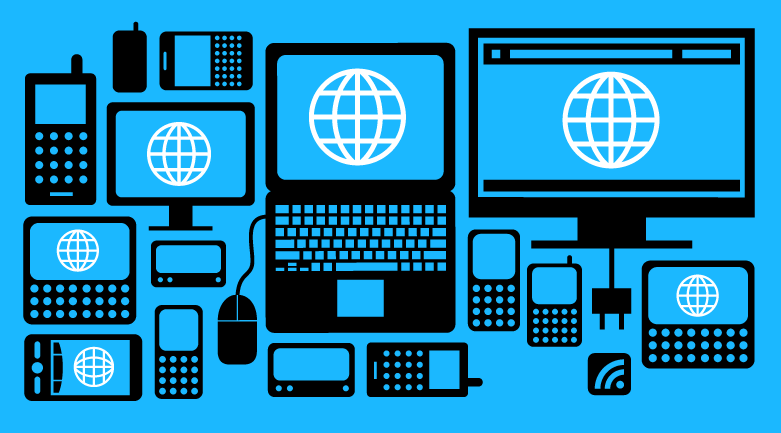
Verizon Escalates Assault on Net Neutrality
This week David Raphael stumbled on the reality of an Internet without Net Neutrality.
Raphael, who posts his thoughts about code and other hobbies at davesblog.com, today alleged that Verizon is deliberately slowing down traffic coming from his company’s servers.
Raphael noted that he and the CEO of his mobile-security company, iScan Online, Inc., have experienced serious slowdowns when trying to access iScan’s services from home using Verizon’s FiOS service.
He also noticed that Netflix has been slow as well. What’s the common denominator between Netflix and iScan Online? It appears that (at least in the part of North Texas where Raphael lives) both companies use Amazon’s AWS Web-hosting service to deliver their content to end users.
Raphael contacted Verizon, and after a long back-and-forth the company’s representative disclosed something quite amazing.
Raphael asked, “Is Verizon now limiting bandwidth to cloud providers like Amazon’s AWS services?”
“Yes,” the customer-service rep said, “it is limited bandwidth to cloud providers.” (Check out Raphael’s screenshot of the conversation for more).
So what’s going on here? Well, some of the details remain unclear, but we do know several facts.
First, Verizon has a history of messing with Netflix traffic using methods that are not remotely transparent to the end user. As in Raphael’s case, the end users experience a slow Netflix stream, but when they run a speed test, their connection appears to work perfectly.
Second, Verizon has made it abundantly clear that it has a strong desire to extract new revenues from online content companies. Needlessly slowing down traffic on its otherwise congestion-free fiber optic network is an obvious way for Verizon to accomplish that goal.
From Dave’s Blog:
I’ve since tested this almost every day for the last couple of weeks. During the day — the bandwidth is normal to AWS. However, after 4pm or so — things get slow.
In my personal opinion, this is Verizon waging war against Netflix. Unfortunately, a lot of infrastructure is hosted on AWS. That means a lot of services are going to be impacted by this.
Right around the time of peak Netflix traffic, Verizon’s world-class fiber optic network is apparently unable to handle not only streaming video traffic, but traffic from many other services — like iScan Online — that are also hosted on AWS servers.
Verizon responded to this latest revelation with a non-denial-denial.
“We treat all traffic equally, and that has not changed,” a Verizon spokesperson told the site BGR.com. “Many factors can affect the speed a customer experiences for a specific site, including that site’s servers, the way the traffic is routed over the Internet, and other considerations.”
This is all true. Many factors can impact performance, and most times these are completely out of the hands of the ISP. However, as Verizon knows quite well, this is not one of those instances.
As reports from last summer show, Verizon is refusing to open new ports for interconnecting traffic for companies like Cogent, which carry specific content like Netflix. That is, Verizon’s deviating from the normal course of action in a very specific, and yes, discriminatory manner.
Verizon, which itself owns an online-streaming company and a cloud-delivery company in addition to its wireless and wired ISP businesses, has every incentive to engage in discriminatory behavior — and, thanks to the recent court ruling knocking out the Net Neutrality rules, it has no legal reason not to.
Welcome to the new Internet.
Without any Net Neutrality rules on the books, and with the FCC having not yet acted to restore its authority to protect users from discrimination, this kind of behavior is all perfectly legal.
And though many of us love Netflix, it’s important to remember this is a problem it’s big enough to buy its way out of. But small businesses like iScan Online will suffer from the predatory tactics of ISPs like Verizon, which, for reasons currently unknown, are willy-nilly tampering with our high-speed Internet access.
The effect is a squeeze on small and large businesses, the customers they’re trying to reach — and everyone else who has a right to access information online.
This is indeed a brave new world. Internet users are no longer protected by the part of the law that guarantees our right to communicate without undue interference. We don’t have that protection because the FCC has refused to classify broadband providers as common carriers.
If the FCC were to reclassify — and it can, today — ISPs like Verizon would be on notice that blatantly anti-competitive and discriminatory behavior will not be tolerated. The FCC would also have the clear authority to do something about it if any carrier did discriminate against us online.
So help us keep the pressure on the FCC and urge it to reclassify broadband now.